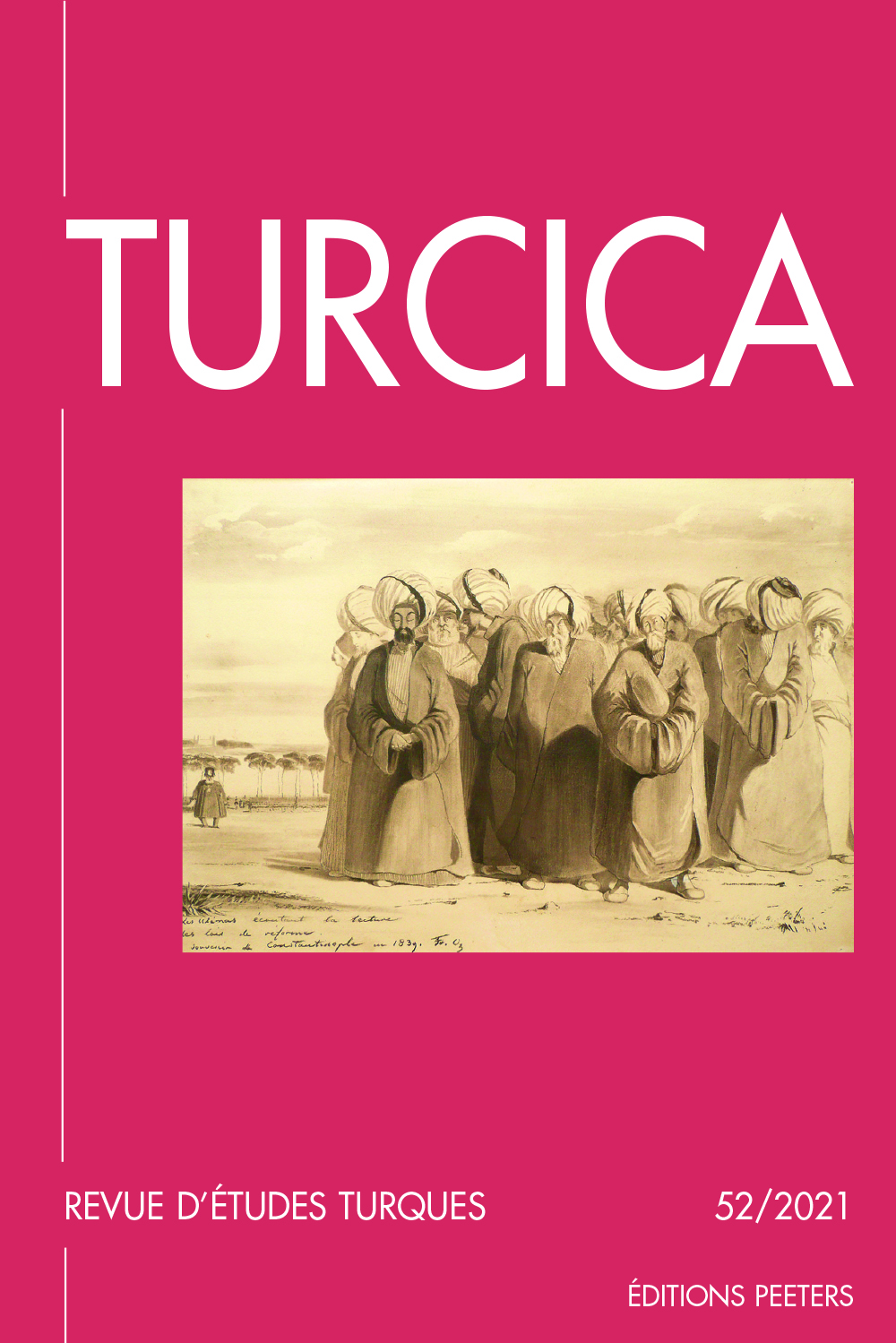next article in this issue  |

|
Document Details : Title: Le premier Roman d'Alexandre versifié en ottoman ou les fondements d'une didactique princière Author(s): TOUTANT, Marc Journal: Turcica Volume: 47 Date: 2016 Pages: 3-31 DOI: 10.2143/TURC.47.0.3164940 Abstract : Cet article s’intéresse à l’İskendernāme, un long poème qu’Aḥmedī (1333/34-1412/13) consacra à la figure d’Alexandre le Grand et qu’il présenta notamment au prince ottoman Süleymān Çelebī (qui régna de 1403 à 1411). L’examen de quelques-unes de ses caractéristiques montre que le poète investissait son ouvrage d’enjeux qui dépassaient la seule sphère artistique, à une époque où l’Empire ottoman était encore en gestation. Tout porte à croire en effet qu’Aḥmedī faisait de la lecture de son poème un moment de didactique princière au sein d’un entourage royal qu’il désirait probablement transformer en une véritable cour au sens que pouvait alors revêtir le terme dans Le Caire mamelouke. Révélatrice de cette ambition est l’importance qu’Aḥmedī accorde à la dimension didactique dans son propos, surtout lorsqu’on compare cet aspect avec le traitement qui lui est réservé dans un autre Roman d’Alexandre composé dans un contexte similaire par un littérateur dont le nom de plume était Ḥamzavī et qui n’était autre que le propre frère d’Aḥmedī. This paper deals with the İskendernāme, the long poem Aḥmedī (1333/34-1412/13) devoted to the figure of Alexander the Great, and which he personally presented to the Ottoman prince Süleymān Çelebī (who ruled between 1403 and 1411). The examination of some of its characteristics shows that through his work the poet wanted to raise issues that went beyond the sole sphere of arts, at a time when the Ottoman Empire was still in gestation. Actually, there is every reason to believe that Aḥmedī regarded the reading of his poem as an opportunity to teach princes within a royal entourage, which he probably wanted to turn into a real court according to the model provided by the Mameluk court in Cairo for instance. This becomes particularly obvious when looking at the importance the poet gave to the didactic dimension in his work. A comparison with the way the teaching dimension was tackled in another Alexander Romance, a work composed in a similar context by a poet named Ḥamzavī, who appeared to be Aḥmedī’s own brother, gives further evidence in this direction. |
 |
